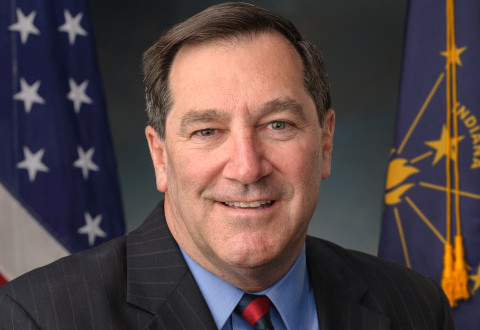Washington, D.C. – This week, the 2018 Farm Bill is scheduled to be debated by the full Senate, after having passed the Senate Agriculture Committee earlier this month. U.S. Senator Joe Donnelly, a member of the Senate Ag Committee helped craft the bill and successfully included a number of provisions in the bill that would benefit Hoosier agriculture and the state’s rural communities.
Donnelly provisions included in the Ag Committee-passed bill would help Hoosier farmers manage risks, implement voluntary conservation practices, and develop new market opportunities as well as help our communities address opioid abuse and food insecurity.
Donnelly said, “With volatility in international trade markets and uncertainty surrounding the RFS, rural America needs the certainty of a new five-year farm bill. I was proud to help write a strong bipartisan Farm Bill, and I’m looking forward to continuing work on the bill this week in the full Senate, where I’m hopeful we can build on the Hoosier priorities that are already included.”
Several Donnelly-led or supported provisions were included in the Senate Ag Committee’s farm bill:
- Fighting the Opioid Epidemic: This bill includes a number of Donnelly-written provisions that would combat the opioid epidemic by targeting telemedicine and community facility program investments for substance abuse treatment and investing in prevention and education programs. All three provisions are from the bipartisan rural opioids package Donnelly introduced in 2017 with Ag Committee Chairman Roberts (R-KS), then-Senator Luther Strange (R-AL), and with Senator John Hoeven (R-ND).
- Promoting Impactful, Voluntary Conservation: The bill would eliminate potential disincentives for voluntary conservation practices like cover crops and support soil health improvement programs. Donnelly heard about the importance of cover crops and conservation programs in several listening session stops, including in 2017 in Knox County and in March 2018 with conservationists and sportsmen in Montgomery County.
- Ensuring Full Planting Flexibility: The bill would retain full planting flexibility for farmers who want to plant fruits and vegetables, which builds on a bipartisan bill Donnelly introduced with Senator Todd Young in December 2017 and Donnelly’s work in the 2014 and 2008 farm bills. Donnelly heard about the continued importance of this in August 2017 when he held a listening session at the Red Gold Tomato Farm in Grant County with specialty produce farmers.
- Developing New Markets: The bill would increase export opportunities for Hoosier farmers through export promotion programs, building on Donnelly’s bipartisan legislation with Senators Joni Ernst (R-IA), Angus King (I-ME), and Susan Collins (R-ME) that would invest in the Market Access Program and the Foreign Market Development program.
- Addressing Food Insecurity: The bill would strengthen oversight of the SNAP program and help fight food insecurity by reforming food assistance programs, while protecting access to benefits and maintaining the integrity of the programs. It would make it easier for seniors to access food assistance by reducing burdensome paperwork based on legislation that Donnelly supported led by Senator Bob Casey (D-PA). In November 2017, Donnelly toured the Food Finders Food Bank Inc. in Lafayette and met with representatives from statewide anti-hunger groups to bring their thoughts to the bill.
- Supporting Rural Communities: The bill would help rural communities attract investment and growth by improving the delivery of high-speed internet and investing in waste- and drinking-water by infrastructure to ensure water systems are providing clean and reliable water.
Earlier this month, Donnelly outlined his priorities for the Farm Bill in a letter to Committee Chairman Pat Roberts (R-KS) and Ranking Member Debbie Stabenow (D-MI). To read the full letter click here.
Through his work on the Senate Agriculture Committee, Donnelly has worked tirelessly to advocate for Hoosier farmers and rural communities. As part of the previous Farm Bill, Donnelly successfully pushed several measures important to Indiana that were signed into law in 2014. The Farm Bill is typically reauthorized every five years, and the current bill expires in September 2018.






